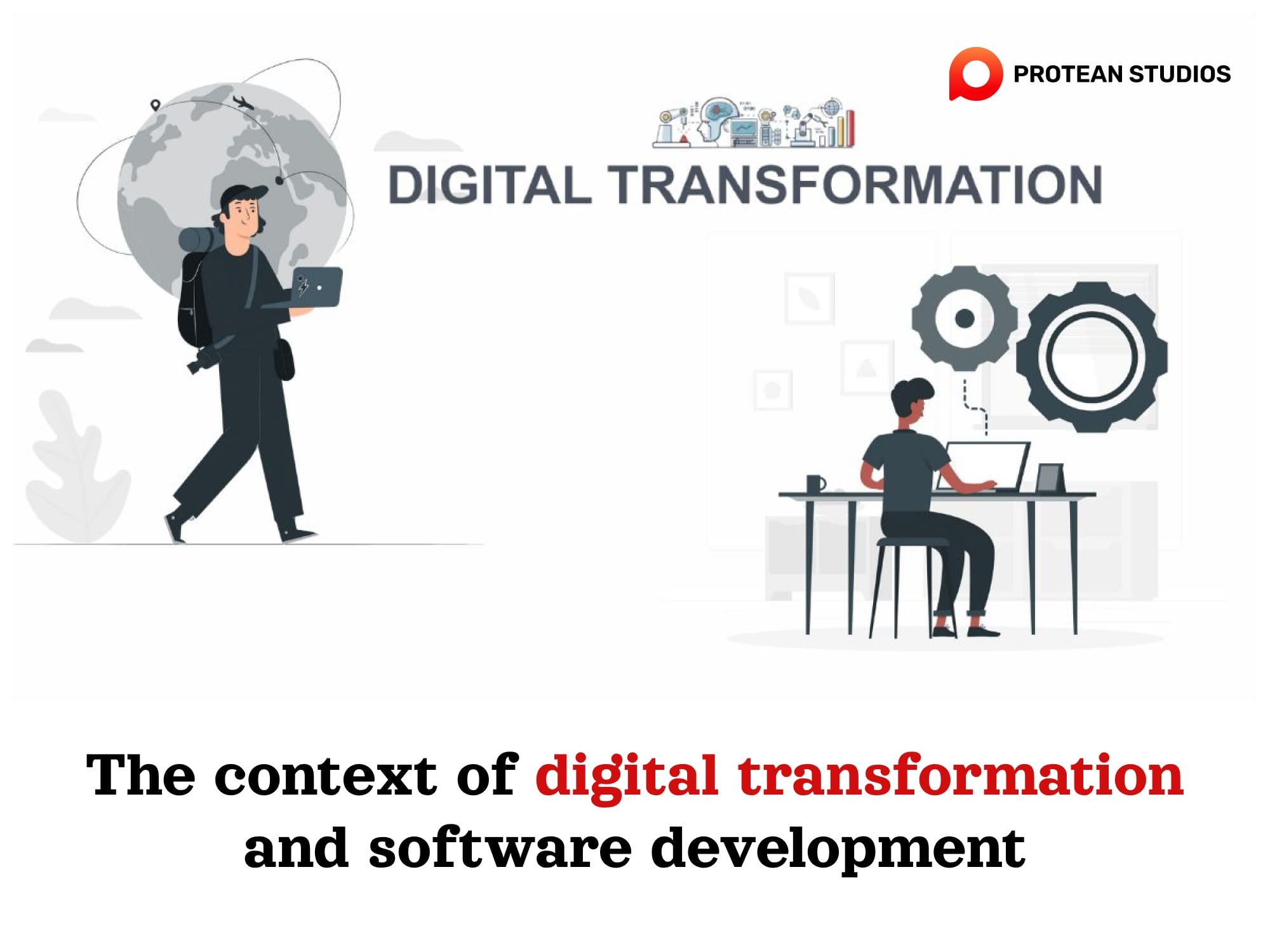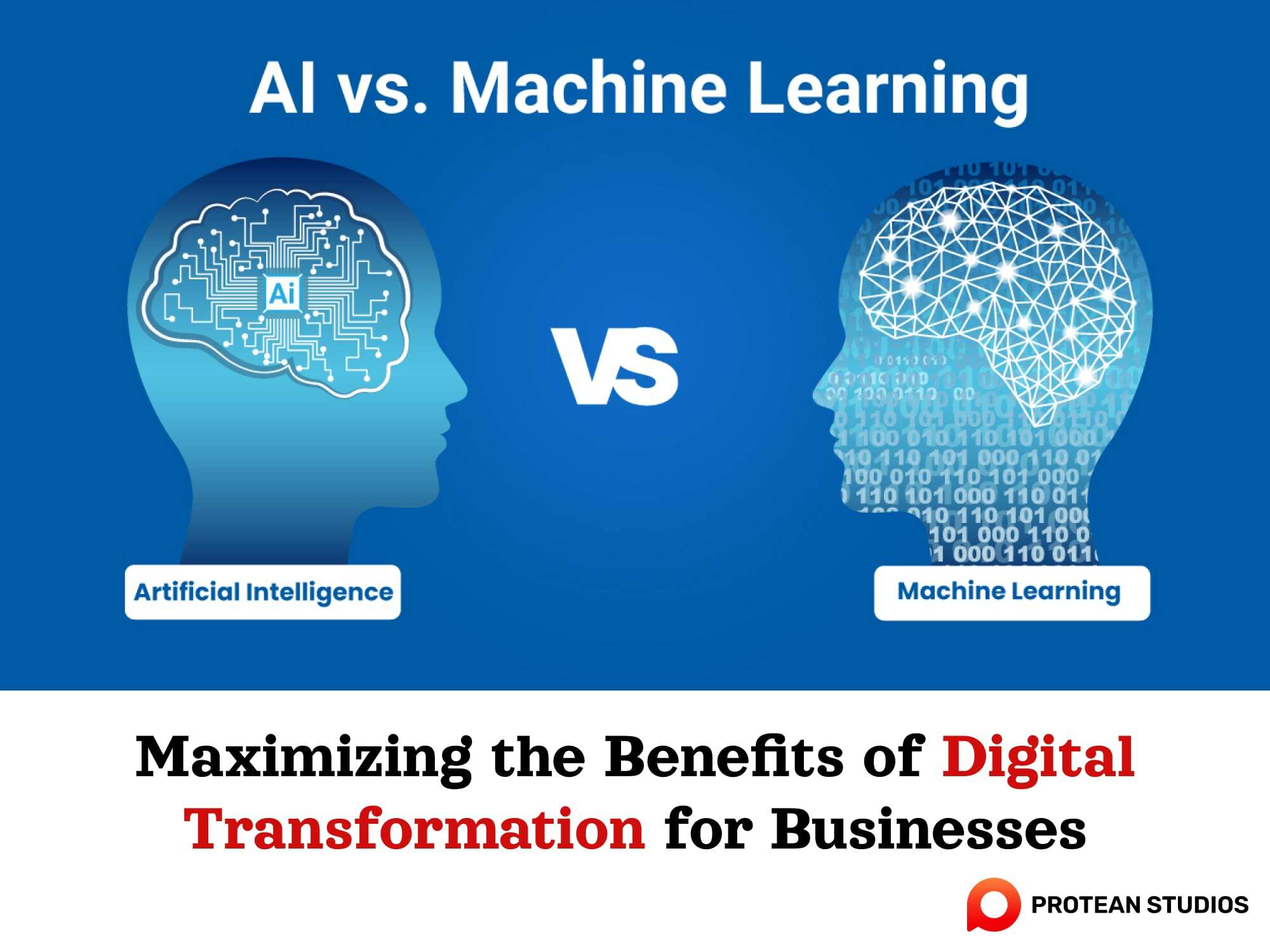In the dynamic landscape of digital transformation, software development is becoming more and more developed, with a lot of benefits. Thus, when businesses can take advantage of these strengths, it can help them enhance efficiency and running performance.
How can organizations unlock their software development potential and achieve DX goals? This article will explore some of the best practices and strategies for software development in the context of DX.
I. About digital transformation
Digital transformation (DX) is the integration of advanced technologies into company operations, driving fundamental change. It helps enhance agility, improve efficiency, and unlock fresh opportunities and value for employees, shareholders, and customers.
People around the world are spending a huge amount, about 1.6 trillion dollars, on digital transformation by the end of 2022. It can reach a staggering 3.4 trillion U.S. dollars by 2026. This underscores the imperative role of software development in navigating today's business landscape.

Businesses can leverage cutting-edge technologies to craft sophisticated custom software solutions, achieving desired outcomes. This move not only saves time but also enhances revenue and efficiency. It's a testament to how crucial software development has become for thriving in the contemporary business environment.
II. How are digital transformation and software development related?
Digital transformation and software development are related concepts that influence each other.
Enabler of Transformation: Software development plays a crucial role in enabling digital transformation. As companies undergo digital transformation initiatives, they often need new or upgraded software systems to support and streamline their processes. Software development becomes the means through which businesses face the technological changes essential for transformation.
Innovation: DX is an innovation in business activities, and software development is at the forefront of creating innovative solutions. New software applications, platforms, and tools emerge as a response to the evolving needs of transformed businesses.
Meet different business needs: In today's digital world, creating special software that fits your business is super important. This customized software helps your business run and adapt to changes, and brings a bunch of benefits.
Push efficiency and productivity: This special software not only makes your business better but also helps your employees work faster and smarter. It's like having a magic helper that handles boring tasks so your team can do more important stuff. It's a win-win: your business gets more efficient, and your team gets a boost in performance!
Read more: Top 10+ Latest Software Development Trends In 2023
III. Changes in software development during the DX period
The digital transformation period has brought significant changes in the way software development
1. Low-Code Development
This is a method of creating software applications with minimal coding, using graphical interfaces and pre-built components. Low-code development enables faster delivery, lower costs, and easier maintenance of software products.

2. Mobile-First Approach
This is a design principle that prioritizes the user experience on mobile devices over other platforms. The mobile-first approach ensures that software applications are responsive, accessible, and optimized for mobile users.
3. Agile Data-Driven Management
Smart and flexible business management thrives on Agile, data-driven approaches. To make this happen, tech leaders concentrate on automating performance tracking, generating reports, and overseeing the activities of the entire team.
In this context, using tools that provide insights into fundamental engineering metrics can assist tech leaders in achieving impressive outcomes. And then, transforming how businesses operate. Another crucial aspect is having clear visibility into tasks. It enables better access and improvements to your team's performance levels.
4. Cloud Technologies
These services and platforms provide computing resources over the internet, such as storage, processing, networking, and security. Cloud technologies enable the scalability, flexibility, and reliability of software applications.
5. Increased Productivity and Efficiency
Digital technology enhances productivity and efficiency by accelerating business processes and streamlining operations. Take robotic process automation (RPA), for example, which can outperform humans in various tasks. Studies show that bots can complete tasks 20 times faster than humans.
Besides, business intelligence and data analytic tools excel at analyzing and collecting data with unmatched accuracy and speed compared to humans. Workers can leverage this analysis to make well-informed decisions more than they could without such advanced technologies.
IV. Maximizing the benefits of digital transformation for businesses
Here are the essential components of digital transformation that you need for your business model.
AI and machine learning
Leverage the power of AI, machine learning, and augmented/virtual reality to create a competitive advantage for your business. These advanced technologies enable you to use every piece of data collected to speed up your growth, achieving unprecedented levels of efficiency and performance!

Omni-channel experience
Delight your customers, and you can simplify their journey by offering a unified customer experience. To keep users on your app, ensure that all features are consistent and smooth across physical and digital channels. This will provide customers with a memorable omnichannel experience.
Embracing automation
Customers nowadays prefer to interact with computer-automated systems or chatbots. The computer-based systems, or chatbots, help to improve the customers’ digital experience. Automating your business processes not only saves time but also keeps users engaged with your software application for extended periods. All without requiring constant human intervention.
V. Transform software development through digital transformation
One of the key aspects of digital transformation is software development, which enables the creation and delivery of digital solutions that meet the changing needs and expectations of customers and stakeholders. Applying the principles and practices of DX can transform software development, including
Adopting agile and DevOps methodologies that foster collaboration, and feedback. Then, continuous improvement across the software development lifecycle.
Leveraging cloud computing, microservices, and containers that provide scalability, flexibility, and resilience for software applications
Implementing automation, artificial intelligence, and data analytics. Because it enhances the quality, performance, and security of software products
Embracing a culture of innovation, and experimentation. It would help if you learned that encourages creativity, risk-taking, and problem-solving
By transforming software development through digital transformation, organizations can gain a competitive edge in the digital economy. Then, deliver value faster and better to their customers and achieve their strategic goals.
In summary, digital transformation embraces new ways of doing things with technology, and people open the door to making software development way better. This context can give us more efficiency, flexibility, and room for awesome ideas. Thus, if you want to know more about software development in DX, contact us to get more information.




